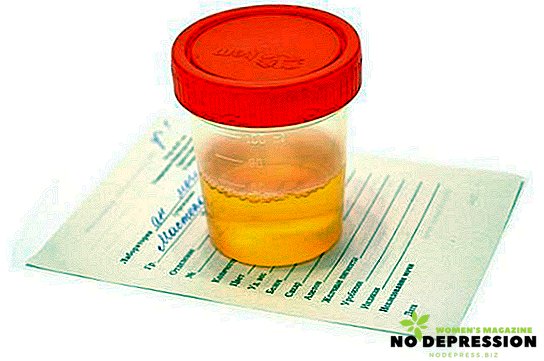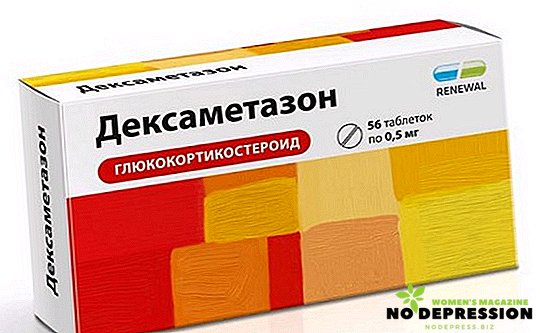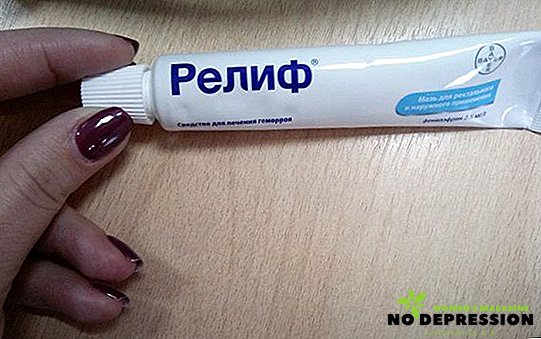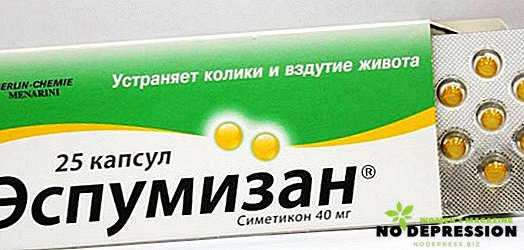Epithelial cells are present in the body of each person, but they enter the urine only during infection, pathology in the urogenital system and nearby organs. By themselves, these cells do not bear any harm, but may indicate serious diseases.

Classification of epithelial cells
Along with the amount of epithelium, when passing urine, its type is also established:
- Flat, lining the urethra. The number of flat type epithelium increases in the case of an inflammatory process occurring in the urethra.
- Transient, which covers the walls of the bladder, ureters, renal pelvis. With a sharp increase in the number of elements you can talk about cystitis, prostatitis, the presence of urolithiasis.
- Renal. This type of epithelium in the analysis of the urine of a healthy person will not be detected, in young children the rate can vary from 1 to 10. Usually, an increase in this indicator indicates damage to the kidney parenchyma.
Determining the number of these cells in the urine requires special accuracy from the specialist, since diagnosis and further treatment largely depends on this indicator.
Norm flat epithelium
When detecting various types of epithelium in urine analyzes, its type, classification, quantity is first determined, which allows to determine the source of the lesion in the future.
The norm is:
- 0-1 / Negativ - in children (from 0 to 10 in newborns);
- from 0 to 5 - for men;
- from 0 to 2 - for women.
If you go beyond the established norm, you can talk about the presence of negative pathologies or diseases. Delivery of control data will help the specialist to determine the rate of development of the inflammatory process, prescribe the required and effective treatment.
The reasons for the increase in the norm and symptoms
The appearance of flat epithelium and its elevated level always indicates an inflammatory process that can be triggered by various factors:
 viruses, bacteria, parasites that can cause bladder damage;
viruses, bacteria, parasites that can cause bladder damage;- dismetabolic processes in the tissues of the kidneys, which can be caused by disruptions in metabolic processes due to the development of salt diathesis;
- drug treatment, which led to functional disorders in the kidneys;
- urethritis;
- inflammatory processes in the prostate.
It should be noted that when studying the results of analyzes it must be remembered that the presence of this element in the urine of men and women must be interpreted differently.
Among women
Excess indicators in women can also talk about any inflammatory pathology in the urethral system. But one should not be frightened if the tests show a significant presence of cells in the urine, since even a small inflammatory process leads to a rapid detachment of the cell lining on the mucous membrane, which causes this change.
Additionally, other signs can be identified:
- urinary problems;
- turbidity and peculiar smell of urine;
- pain in the lower abdomen;
- pain when urinating.
In addition, similar signs are present in the long-term course of mesangioproliferative glomerulonephritis, as a result of which immunoglobulin accumulates in the kidneys. This leads to inflammatory processes in the tissues, malfunction of the organs.
Such a pathology for a long time may not manifest in any way - it can be detected after detection of protein compounds, erythrocytes in analyzes. The disease is also characterized by:
- dark and frothy urine;
- swelling of the legs and arms;
- pain in the kidney area.
Long-term treatment with analgesics (Aspirin, Ibuprofen, etc.) also leads to an increase in the epithelium in urine in women.
Have pregnant
During this period, such an increase is usually not associated with the appearance of pathologies or diseases. During pregnancy, the urinary system works in an enhanced mode: for women, frequent urination is characteristic, which contributes to the desquamation of the epithelial cover. In addition, during pregnancy, the enlarged uterus squeezes the internal organs, which leads to a temporary change in their position, and therefore the norms of many indicators may differ.
However, when determining the transitional epithelium in the urine, it is advisable to consult a doctor, as this may signal the presence of cystitis or pyelonephritis.
Inflammatory reactions in such a period occur fairly quickly, and therefore it is so important to start treatment on time. The allowable rate of sediment is up to 5 cells, if their number is higher, you should immediately see a doctor.
In children
Such cells can be detected even in newborns and infants, which is explained by new life conditions to which they need to adapt. With the growth of the child, the norm should be 0-1 units. If you seriously exceed the figures, you should consult a doctor, as this indicates the presence of inflammation or infection.
A sharp excess of regulatory indicators may indicate:
- inflammatory processes in the genitals;
- the development of cystitis or urethritis;
- blood circulation disorders;
- urolithiasis;
- neurological diseases;
- reflux (reverse urine flow);
- purulent processes.
And in order to avoid mistakes when passing tests, it is necessary to use sterile containers for collecting urine and follow all the rules of hygiene.

The procedure for collecting analyzes
When testing, the following important rules should be kept in mind:
- before passing urine you need to wash up;
- they collect only the “middle” portion, having missed the first and the last part of the jet, since it is this liquid that will be the least contaminated by foreign elements, it contains the natural concentration of the components;
- the volume of the liquid is about 0.1 l; to control, you need to use a special measuring jar;
- An important point is the speed of delivery of the analysis. From the time of receipt of the urine to the time of its study should take no more than two hours.
And do not forget to thoroughly wash the jar or purchase a special container for testing.
Features of treatment in this pathology
At the first symptoms (pain during urination, often urination, change of smell and properties of urine), you should immediately consult a doctor and pass all tests. The method of therapy will depend on the results of the study, the indicators of sediment:
- In the case of urethritis, antibiotics are prescribed, such as Azithromycin or Cefazolin, and the doctor may also prescribe vitamin therapy and a course of immunostimulants. During this time it is recommended to abandon spicy and salty foods, alcohol.
- When chronic urethritis is detected, it is treated with antiseptics injected into the urethral canal. The duration of therapy in this case is assigned individually based on the severity of the disease.
- When inflammatory reactions in the bladder prescribe antibiotics: Levoflaksotsin, Baktrim as well as nonsteroid painkillers, such as Cystone or Fitolysin.
- In the case when the main cause is renal nephropathy, it is necessary to immediately exclude from the medication, which could be the cause of this pathology. Further therapy is carried out with the help of hormones: Prednisolone, Triamcinolone. Do not self-medicate so as not to aggravate the disease.
The best way to fight is prevention, to prevent the onset of pathology. To protect the urogenital system, it is necessary to maintain a healthy lifestyle, do not forget about exercise, activity, time to cure infections and inflammatory processes, regularly undergo doctors and get tested.


 viruses, bacteria, parasites that can cause bladder damage;
viruses, bacteria, parasites that can cause bladder damage;









